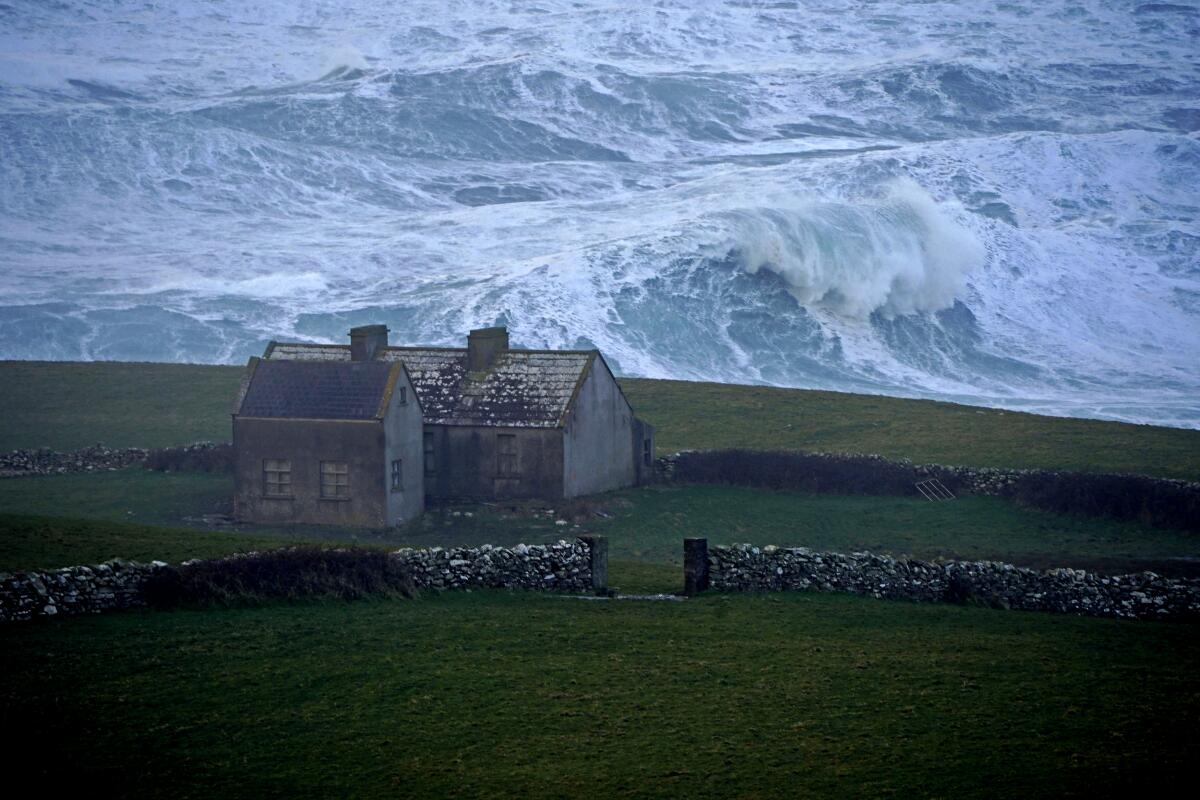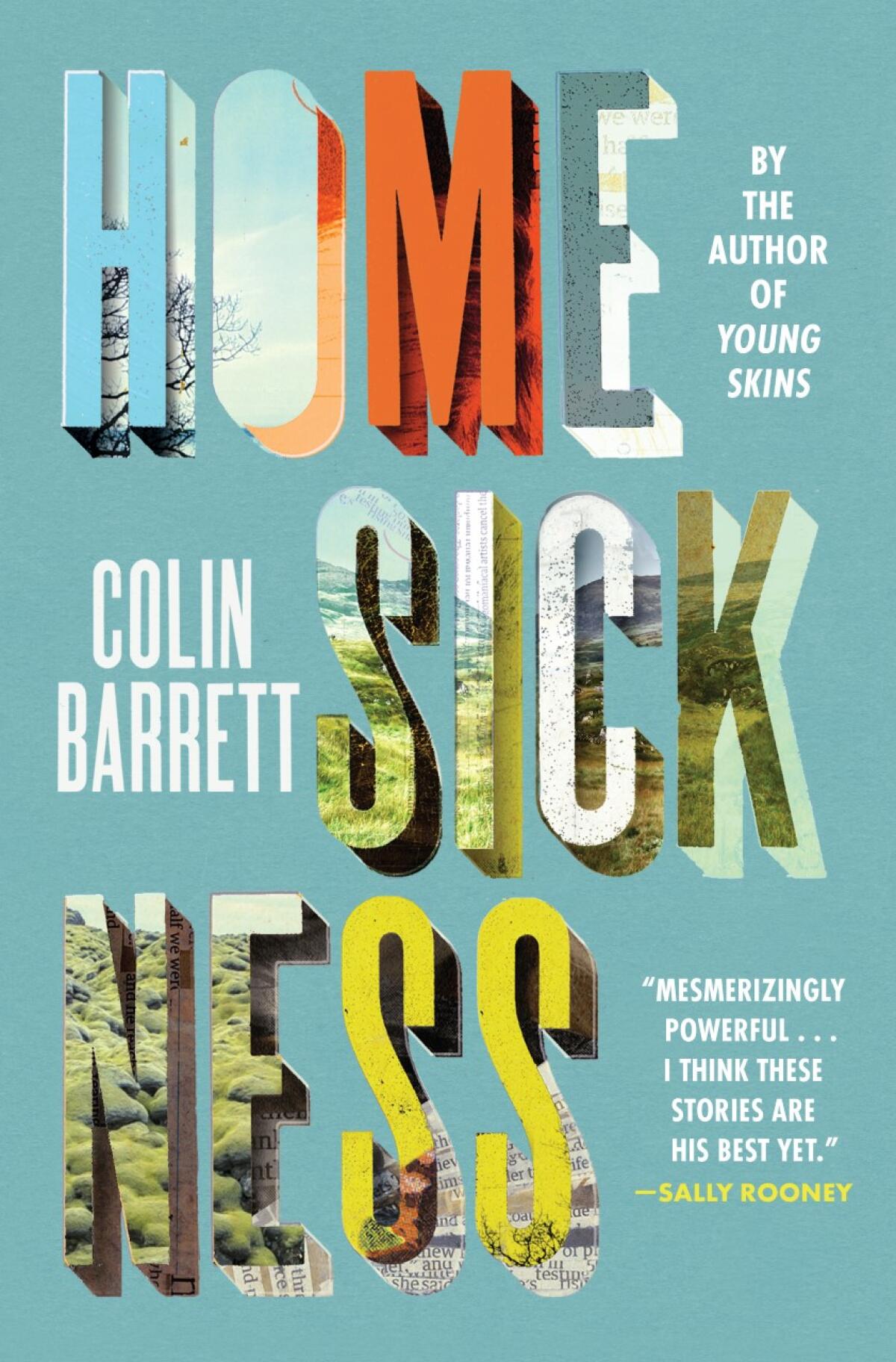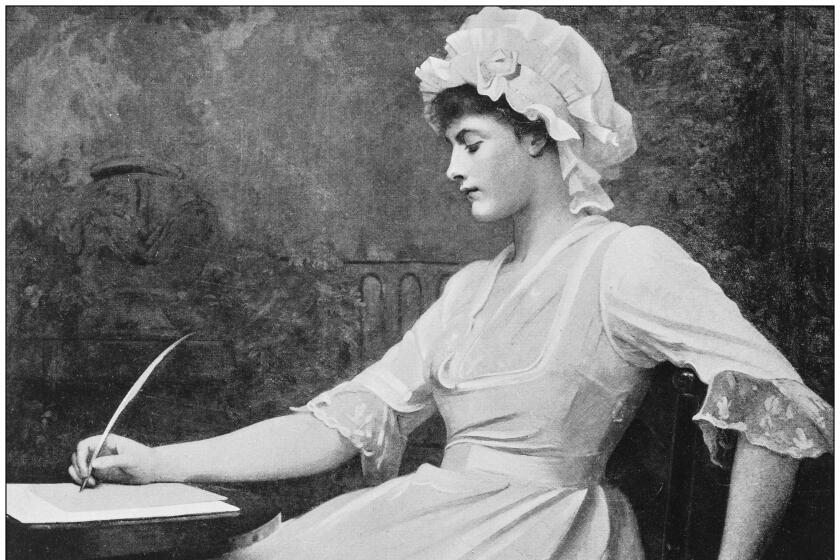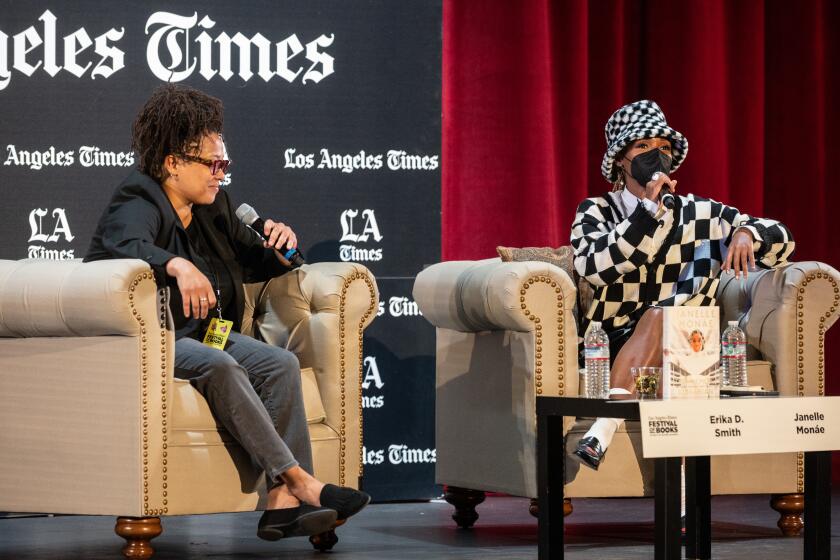Beyond Sally Rooney: Among the Irish new wave, Colin Barrett’s short stories stand out

On the Shelf
'Homesickness'
By Colin Barrett
Grove Press: 224 pages, $27
If you buy books linked on our site, The Times may earn a commission from Bookshop.org, whose fees support independent bookstores.
Many versions of modern Ireland come to us via literature, from the mystical chaos of Edna O’Brien to the dark hinterlands of John Banville, the intricate cacophony of Anna Burns and the humor of Roddy Doyle — not to mention the feminist comedy of Marian Keyes and the African Irish experience of Nick Makoha. Colm Tóibín. Anne Enright. Colum McCann. Eimear McBride. I could go on. I won’t go on. (Apologies to that great Irishman, Samuel Beckett.)
Makoha and Burns are among a number of young Irish novelists who have caught a new wave of readers. Setting aside Sally Rooney, who has become such a global phenom that she wrote a novel about it, there are Naoise Dolan, Mike McCormack, Claire Keegan. And there is Colin Barrett, who owns the domain of the short story. Barrett’s 2015 collection, “Young Skins,” takes place entirely in the County Kerry town of Glenbeigh — “nowhere you have been, but you know its ilk.” His debut won the Rooney Prize for Irish Literature and a National Book Foundation “5 under 35” honor, captivating readers and critics with gritty realism about the young working class.
Barrett’s new collection, “Homesickness,” expands its range in both age and geography, with characters well above 30 (some even elderly) and settings in County Mayo, County Sligo, even all the way to Toronto (in the penultimate story, “The Low, Shimmering Black Drone”). Yet his story count remains low — only eight here, compared to the seven in “Young Skins.”
Novelist Lynn Steger Strong on the revolutionary passivity of Rachel Cusk, Ottessa Moshfegh and Sally Rooney — how we’ve misread them and what comes next.
Perhaps it’s better this way because Barrett’s stories contain so many layers they’re worth rereading more or less right away. “A Shooting in Rathreedane” bears the tone and subject matter of everyone’s favorite murder shows (think “Dublin Murder Squad” and “Harry’s Game”) along with moments so mordantly funny you won’t even know that sound you hear is you, laughing out loud. Sgt. Jackie Noonan “out of Ballina Garda Station” meets the witness to a crime and asks his name: “I’ve no say in it but every c— that knows me does call me Bubbles.”

Turn the page and you’re meeting Pell Munnelly, a teenage girl whose 25-year-old brother, Nick, works long hours to support his siblings after “the folks died off of cancer over consecutive summers, the mammy three years back, the daddy the year before last.” Their young brother Gerry spends nearly all his time on a PlayStation game called “Blood Dusk 2.” As violent as the first-person shooter is, “What was worth it, what kept Gerry coming back, was the game map. The map was gorgeous, two hundred square miles of simulated, fully interactable nineteenth-century North American frontier.” It’s tough to imagine a pithier way to illuminate a child lost to grief.
The title of the story “The Alps,” meanwhile, refers not to topography but to three brothers in early middle age. Eustace, Rory and Bimbo travel everywhere together, their family tree “a stump mutilated by cancer and coronaries” — a lineage they seem bent on perpetuating by eating takeaway, drinking “vats of Guinness every weekend” and getting into various scrapes. “The Alps were built for punishment, they were not built to last.”
When the trio encounters true madness at the local football clubhouse — in the form of a young man wielding a Japanese ceremonial sword — readerly antennae sense a brawl ahead. We fear for the other patrons, including the aged Peader Ginty (“by this stage of things a big watery bag of imperilled organs”) and his flinty daughter Moira, whose response to Bimbo’s saying he has nothing to complain about is: “People who have nothing to complain about lack character.” Hold your laughter, please, because the expected brawl is going unexpected places.
In ‘Life Without Children,’ Roddy Doyle’s familiarly stuck characters must now confront an unstoppable contagion and its unaccountable losses.
Some prose writers, especially those who are deft with plot, can keep your attention even while writing unnecessary sentences. That’s not the case with Barrett. Every line counts; if you skim his work, you may understand it, but you’ll rob yourself of both pleasure and surprise.

In “Whoever Is There, Come on Through,” a woman named Eileen picks up her childhood friend Murt from a psychiatric hospital and takes him to McDonald’s. His order includes two Happy Meals. “’Always enjoy the tension,’ he said. ‘Waiting to see if they’ll ask if there’s actually a child with you.’” Later, after Eileen has spent weeks taking Murt for walks and bringing him food, his brother Jamie, “his mouth gone beady, unrepentant with drink,” says to her: “You care for him, Eileen ... but you have no pity for him. He is what he is. He is not like the rest of us. You have to accept that. You have to have a little pity.”
That needle-drop of wisdom amid life’s dailiness signals Barrett’s unique genius more than any under-35 accolade can. There are four more electric stories in “Homesickness” unmentioned here; read them. If Barrett should choose one day to write a novel, it will be something to see, perhaps like the parts of the Irish coastline the tourists ignore. Forget your Cliffs of Moher and take a detour to those at Slieve League; gasp as you summit the rise and face natural glory unmarred by visitor centers or traveling herds in thin plastic ponchos.
Panels, prizes and people — lots of them. Coverage of the L.A. Times’ first in-person Festival of Books since 2019 begins below.
That’s the experience of reading Barrett’s fiction — the hard truth shorn of familiar signposts or souvenirs. He writes what he knows, but he also writes to discover what he doesn’t know, a simple but crucial distinction you can sense instinctively, no matter how many of his compatriots you’ve already read.
Patrick is a freelance critic who tweets @TheBookMaven.
More to Read
Sign up for our Book Club newsletter
Get the latest news, events and more from the Los Angeles Times Book Club, and help us get L.A. reading and talking.
You may occasionally receive promotional content from the Los Angeles Times.










